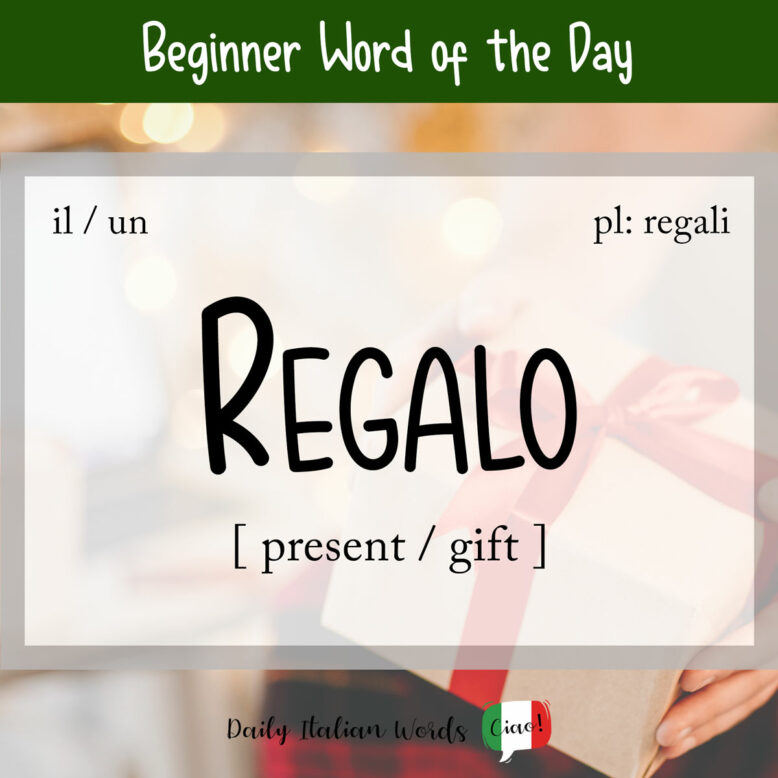According to Christian tradition, the practice of exchanging presents during Christmastime is symbolic of the presentation of the gifts gold, frankincense and myrrh to Jesus by the Three Wise Men (i Tre Re Magi). It was reinforced by the story of St. Nicholas, a fourth-century saint and secret gift-giver who gave rise to the model of Sinterklaas and later Santa Claus (Babbo Natale).
The word for present or gift in Italian is regalo (masculine, plural: regali).


It comes from the verb regalare which, unsurprisingly, means to gift, give away or donate.
Ti regalo questo libro. L’ho già finito.
I’ll give you this book. I’ve already finished it.
If you receive something as a gift or for free, you would say it is in regalo. A synonym for this is in omaggio. The latter is more common and can be accompanied by the verb regalare.
Oggi regalano dei biglietti omaggio per il concerto di Zucchero.
Today they’re giving away free tickets for Zucchero’s concert.
When talking about gift items in a shop window, you can also use the expression articoli da regalo.
There are various regali you might receive in your lifetime. These include:
- regalo di nozze = wedding present
- regalo di compleanno = birthday present
- buono regalo = gift certificate
- cesto regalo = gift basket
Another very common word for gift is dono. Whereas regalo normally refers to physical gifts such as toys (giochi) or books (libri), dono can also be used to talk about intangible gifts such as happiness (felicità), life (vita), or love (amore) to name a few.
Il dono della vita è prezioso.
The gift of life is precious.
In a figurative sense, regalo can mean favour or something you would appreciate. It can be used in an ironic way too.
Se stai zitto per cinque minuti mi fai un grosso regalo.
If you shut up for five minutes you’ll do me a big favour.
Heather Broster is a graduate with honours in linguistics from the University of Western Ontario. She is an aspiring polyglot, proficient in English and Italian, as well as Japanese, Welsh, and French to varying degrees of fluency. Originally from Toronto, Heather has resided in various countries, notably Italy for a period of six years. Her primary focus lies in the fields of language acquisition, education, and bilingual instruction.


